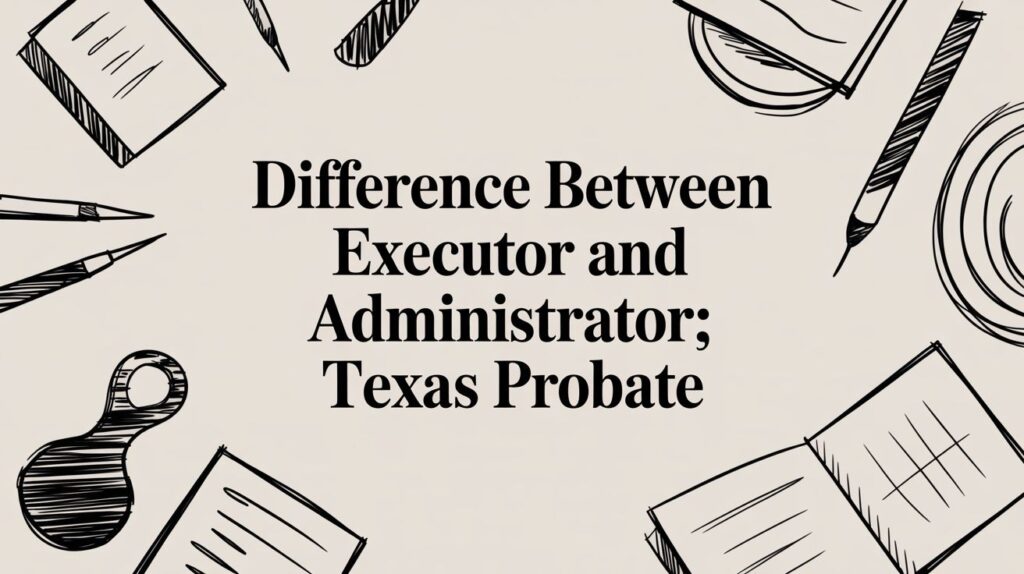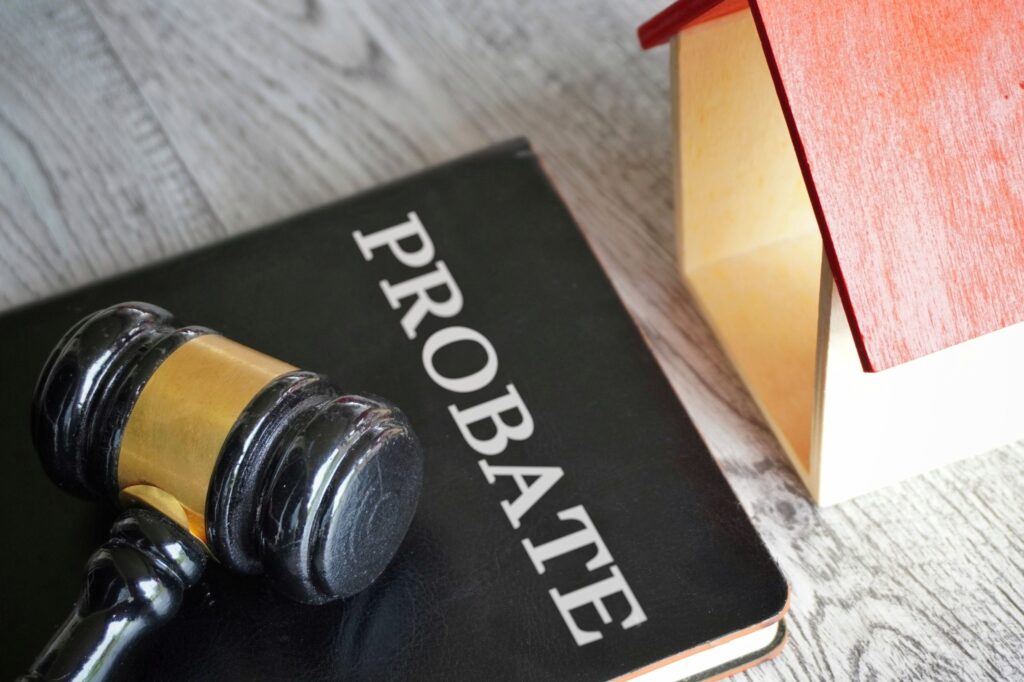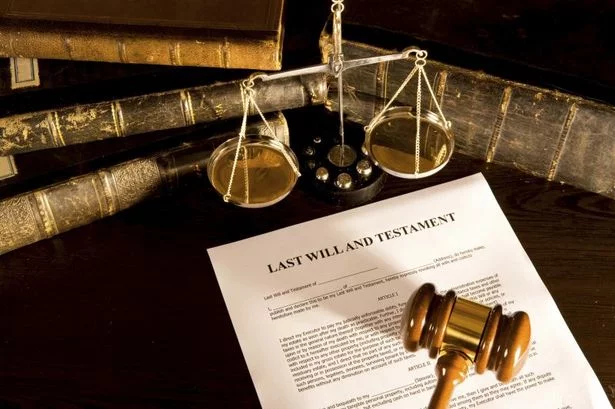When dealing with estate planning, many couples choose to create a joint will to simplify the distribution of assets after their passing. If you are responsible for handling an estate and need to probate a joint will in Texas, understanding the legal process is essential. Texas probate laws govern how joint wills are executed, and knowing what to expect can help avoid unnecessary delays and disputes.
This guide will walk you through how to probate a joint will in Texas, how assets are distributed, and the legal challenges that may arise. Whether you are an executor, heir, or someone interested in estate planning, this information will help you navigate the probate process smoothly.

What Is a Joint Will in Texas?
A joint will is a single document created by two people typically spouses that outlines how their assets will be distributed upon their deaths. Unlike separate wills, which allow each person to make individual decisions, a joint will merges both individuals’ wishes into one document.
In Texas, joint wills are binding agreements, meaning that when one spouse passes away, the surviving spouse cannot change the terms of the will. This is an important distinction because it can impact how assets are managed and distributed after both individuals pass.
Key Features of a Joint Will
- It is signed by both spouses and outlines asset distribution.
- Once one spouse passes, the will cannot be altered.
- It ensures that assets go to the designated beneficiaries without changes.
- It becomes irrevocable after the first spouse’s death.
While joint wills were once common, many estate planning professionals now recommend alternative estate planning methods, such as a revocable living trust, due to the legal restrictions joint wills impose.
How to Probate a Joint Will in Texas
Probating a joint will in Texas follows a process similar to probating a regular will, but there are unique considerations involved. Executors and heirs must navigate strict legal requirements to ensure assets are distributed correctly. The following steps outline how to probate a joint will in Texas and ensure that assets are properly distributed according to the document’s terms.
1. File the Will with the Probate Court
The first step in probating a joint will is to file the document with the probate court in the county where the deceased lived. The executor (the person responsible for carrying out the will) must submit:
- The original joint will
- A death certificate
- A petition for probate
Texas law requires wills to be probated within four years of the testator’s death. If the will is not submitted in time, the estate may be subject to intestate succession laws, meaning assets could be distributed according to state guidelines instead of the will’s instructions. Late filings may also lead to unnecessary legal complications that can delay the probate process.
2. Validate the Will
The court will review the joint will to determine its validity. To be considered legally binding, the will must meet these conditions:
- The deceased must have been mentally competent at the time of signing.
- The will must be signed by both spouses in the presence of two witnesses.
- It must be notarized or contain a self-proving affidavit.
If there are any disputes over the validity of the will, heirs or creditors may challenge the document, which can complicate probate proceedings. The burden of proof falls on those contesting the will, and legal battles can prolong the process for all involved.
3. Appoint an Executor
If the will names an executor, the court will formally recognize that person and grant them letters testamentary, which give them legal authority to manage the estate. If no executor is named, the court will appoint someone usually a surviving spouse or adult child—to handle probate. This decision ensures that estate administration follows legal procedures.
The executor’s responsibilities include:
- Identifying and valuing estate assets
- Paying off outstanding debts and taxes
- Distributing assets according to the will
Since joint wills cannot be changed after one spouse’s death, the executor must strictly follow the outlined distribution plan. They are legally bound to act in the best interests of the estate and its beneficiaries.
4. Notify Creditors and Heirs
Texas probate law requires executors to notify creditors and beneficiaries that the estate is being probated. This step ensures that:
- Creditors have a chance to file claims for unpaid debts.
- Heirs and beneficiaries are aware of their inheritance rights.
- The probate process is conducted transparently.
Failure to properly notify interested parties can lead to legal disputes and delays in settling the estate. It is essential to follow proper notification procedures to avoid challenges from creditors or disinherited heirs.
5. Settle Debts and Taxes
Before assets can be distributed, all outstanding debts, taxes, and legal fees must be paid. This includes:
- Funeral expenses
- Medical bills
- Outstanding loans and mortgages
- Estate and income taxes
If the estate does not have enough funds to cover these expenses, some assets may need to be sold before distribution. Executors should prioritize debts to ensure that creditors are paid according to legal requirements before beneficiaries receive their inheritance.
6. Distribute Assets According to the Will
Once all debts are settled, the remaining assets are distributed to beneficiaries based on the joint will’s instructions. Since joint wills are irrevocable after one spouse dies, the executor must follow the original agreement without making any changes. The legal structure of a joint will means that no modifications can be made, even if circumstances change over time.
This is a key reason why some families find joint wills problematic, as they do not allow flexibility if circumstances change after the first spouse’s death. Beneficiaries may struggle with outdated provisions that no longer align with their financial needs or family dynamics.

Challenges of Probating a Joint Will in Texas
While joint wills can simplify estate planning, they often present legal challenges during probate. Understanding these potential issues can help beneficiaries and executors prepare for complications.
1. Inability to Change Beneficiaries
Once one spouse passes away, the surviving spouse cannot make changes to the will. This can be problematic if:
- Family relationships change over time.
- A beneficiary passes away before inheriting.
- The surviving spouse’s financial situation changes.
- New financial needs arise that require adjustments to asset distribution.
2. Disputes Among Heirs
Since joint wills are binding, heirs may contest the will if they believe its terms are outdated or unfair. Disputes can arise if:
- The will does not account for new family members (such as grandchildren).
- Assets were not properly accounted for.
- One heir believes they were unfairly excluded or shortchanged.
- The terms of the will no longer reflect the best interests of the beneficiaries.
3. Complicated Probate Process
Because a joint will must remain intact after the first spouse’s death, it can complicate how assets are handled during the second spouse’s lifetime. In some cases, this leads to lengthy probate disputes that delay the distribution of assets. Executors may find it difficult to manage the estate if there are unexpected legal challenges.
Alternatives to a Joint Will in Texas
If you are considering a joint will but are concerned about its limitations, other estate planning tools may offer greater flexibility. Choosing the right approach ensures that your assets are distributed according to your wishes without unnecessary complications.
1. Mirror Wills
Mirror wills allow spouses to create separate but identical wills that reflect their shared wishes. Unlike joint wills, each spouse can revise their will if needed. This flexibility makes it easier to adjust estate plans as life circumstances change.
2. Revocable Living Trusts
A living trust allows spouses to transfer assets into a trust while they are still alive. After one spouse passes, the trust remains in place, but it offers more flexibility than a joint will. This option helps avoid probate altogether, ensuring a smoother transfer of assets.
3. Testamentary Trusts
A testamentary trust is created within a will and becomes active after the testator’s death. This method provides more control over how assets are distributed over time. It is particularly useful for protecting assets for minor children or heirs with special needs.

Final Thoughts: Is a Joint Will the Right Choice for You?
Understanding how to probate a joint will in Texas is essential for ensuring a smooth estate distribution process. While joint wills can simplify planning for married couples, they also come with legal limitations that may create challenges for surviving family members. Being aware of these potential issues can help you make more informed estate planning decisions.
If you are handling the probate of a joint will, working with an experienced probate attorney can help navigate potential complications and ensure the estate is settled correctly. Legal guidance can prevent unnecessary delays and ensure that the deceased’s wishes are properly executed.
For those considering estate planning options, it’s important to weigh the pros and cons of a joint will against other available tools, such as trusts or mirror wills. Making the right choice now can prevent future disputes and ensure your loved ones are protected. Consulting with an estate planning professional can help you determine the best solution for your unique needs.








